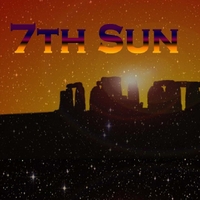 Oh, the ‘90s were great, weren’t they? The glam scene of the 1980s took the natural next step, from spandex and leather boots to flannel shirts and ripped blue jeans. Rock music was consistently featured on Top 40 radio, alongside boy bands and Disney stars. Who cares if the genre bro-ed out for all those years; at least someone with an electric guitar made TRL’s afternoon countdown!
Oh, the ‘90s were great, weren’t they? The glam scene of the 1980s took the natural next step, from spandex and leather boots to flannel shirts and ripped blue jeans. Rock music was consistently featured on Top 40 radio, alongside boy bands and Disney stars. Who cares if the genre bro-ed out for all those years; at least someone with an electric guitar made TRL’s afternoon countdown!
Bands like Creed and Sevendust and Nickelback and Candlebox and Limp Bizkit were able to exist and — gasp! — even sell millions of records. Like it or not, it was the last time rock music actually felt like it was mainstream (because despite all the hope in the world, Alabama Shakes ain’t following up Justin Bieber on any radio dial anywhere ever). Sure, it gets dismissed as being watered down (because, well, it was), but it held a large place in the hearts of a whole lot of angry, dreadlocked teenage boys.
It also appears to be the source from which local quartet 7th Sun took the bulk of their inspiration. The band’s website claims they’re “rock and blues,” but the truth is that all you have to do is pop in their self-titled five-song EP to understand how closely related they are to the alternative rock of yore. It’s accessible enough to not have any offensive edges, but it’s also not clean enough to really be called pop. It’s like, come on, now. This is a group of guys who posted a half-cooked demo of Sublime’s “What I Got” on their website.
For everyone to hear. Whenever they want.
Anyway, the problem here isn’t necessarily that the group’s originals seem also-ran; the problem actually happens to be the execution of said also-ran originals. “Digital Flurry” is centered around a guitar progression you’ve heard at least 40,000 times, and it wouldn’t be that bad if the group was simply just tighter. After announcing itself with Eric Partyka’s wah-wah-happy guitar, the riff fades down in favor of a verse that’s supposed to be anchored with a steady kick drum from Ronnie Bidle. The problem?
That kick drum ain’t all that steady.
You could argue that it might not be as egregious as it sounds, but the same issue plagues opener “Find Me.” The rhythm section just isn’t in step. Bidle is too unsteady and bassist Ed Swiger is too quick to the punch. The result is a bit of a jumbled mess, even if Partyka’s voice sounds the most radio-ready here. Just zone in on the lyrics, which are far too hard to understand: “You got lost in ‘91 / I got lost in ‘95 / All the friends and good times / Sure went right on by.” Huh? How did who get lost? And exactly how is anyone going to find their way anywhere?
They aren’t, even if they take the “Muddy River” that pops up as the EP-ender. Perhaps the set’s most listenable moment, it features some passable double-kick/tom-tom rolls from Bidle that barely work in weirdly disjointed ways. The song’s saving grace comes courtesy of Partyka’s guitar, which provides the closest thing to blues that 7th Sun gets when the chorus opens up and he hammers on the type of note that would make Gary Clark Jr. smile. All is lost, however, when the track’s second half kicks in and the whole thing turns into an Alice In Chains C-side.
Slowing down doesn’t really help, either. “Metal Bars” is the early-years softer side of Stone Temple Pilots without the imagination. It’s also one of the rare times an acoustic guitar pops up, and while that might sound like it could make things more intriguing, the presence is actually wasted, even after it’s eventually used for soloing. “Plan to Leave You” then settles into something resembling an early ‘90s Seattle band attempting to write a Pink Floyd ballad. It’s saved by some elongated Partyka shredding throughout the bridge, but you almost get the feeling that these guys probably think it’s a lot better than it actually is.
And that kind of sums up 7th Sun’s “7th Sun” the most: They aren’t humble enough to stick to what they know best. There are too many bends in structure that feel shoehorned in, there are too many attempts to create the illusion of both originality and versatility, and for God’s sake, there’s too many damn double-kick drum fills that, after a while, almost literally become the definition of useless. If they would do a better job hiding their weaknesses and accentuating their strengths, maybe this wouldn’t feel like a handful of songs that an estranged cousin of Three Doors Down tried to write at some point in 1998.
“Don’t buy what you see,” Partyka asserts at one point. Oh, the irony.
* 1 1/2 STARS OUT OF 4 *
